𝑻𝑯𝑬 𝑱𝑶𝑼𝑹𝑵𝑬𝒀 𝑻𝑶 𝑬𝑻𝑯𝑰𝑪𝑨𝑳 𝑨𝑷𝑷𝑹𝑶𝑽𝑨𝑳 𝑭𝑶𝑹 𝑴𝒀 𝑷𝑯𝑫 𝑺𝑻𝑼𝑫𝒀.
Being a PhD student and new to research life, the rigorous process of ethical application for a complex study like mine pushed me to my limits.

Although I had very supportive supervisors, they did not spare me from being critical of my work. In fact, my principal supervisor Dr Julie Anne King will say, “Aaron sometimes it is best to be blunt with you about your work”. The bluntness sharpened me and made me more resilient. I took these comments with a smile because I knew it was for my own good.

My study, which involved Persons with disabilities living with HIV, was already complex. With COVID-19, my supervisors made sure I had alternative plans and guided me to prepare my ethics application while anticipating the comments from the ethical committee.
We had countless emails (some attached) and meetings with my supervisors to ensure that all questions were answered. On some occasions, just when I thought I was done, my supervisors would return with more reviews![]() . It was indeed a tasking process, but I was glad to read the feedback from renowned researchers in my field who reviewed my ethics application and approved it.
. It was indeed a tasking process, but I was glad to read the feedback from renowned researchers in my field who reviewed my ethics application and approved it.

While there were many comments, a few which make me smile are highlighted in words and pictures:
1. This is an excellent application addressing many complexities. The documentation is, by necessity, extensive and well-executed. I note there is already Nigerian ethics approval and thank the applicant for submitting evidence of this. I understand why the narrowing of the category of PWDs is required and appreciate the many steps required to manage adjustments that might be needed, including Covid related processes… this is an excellent application that is thoughtful in design and planned implementation (Assoc. Prof. Heather Fraser)
2. The potential benefit of the research is justified in capturing this important and often omitted group to understand barriers/challenges to ART compliance. My learning from this process includes:
1. Always be humble to receive guidance and direction from your supervisors. They have done this for years and know what to expect. No matter your field experience, allow them to take you by the hand and guide you towards growth.
2. Do not frown at feedback or reviews, they only make your work better.
Special thanks to my supervisors Dr. Julie Kimg and Dr. Jo Durham, for seeing me through this important milestone of ethical approval.
Now it is time to collect data by listening to the lived experiences of Persons with Disabilities living with HIV in Nigeria. What a privilege to collect these stories.

THE MAKING OF DR. AARON AKPU PHILIP (DR AAP)

LIFE CAN COME FROM DEATH: MY PERSONAL FIGHT WITH HIV/AIDS

THE PHD JOURNEY IS OVER

AN IMAGINED CONVERSATION

TAKE ADVANTAGE OF THE FAILURE


